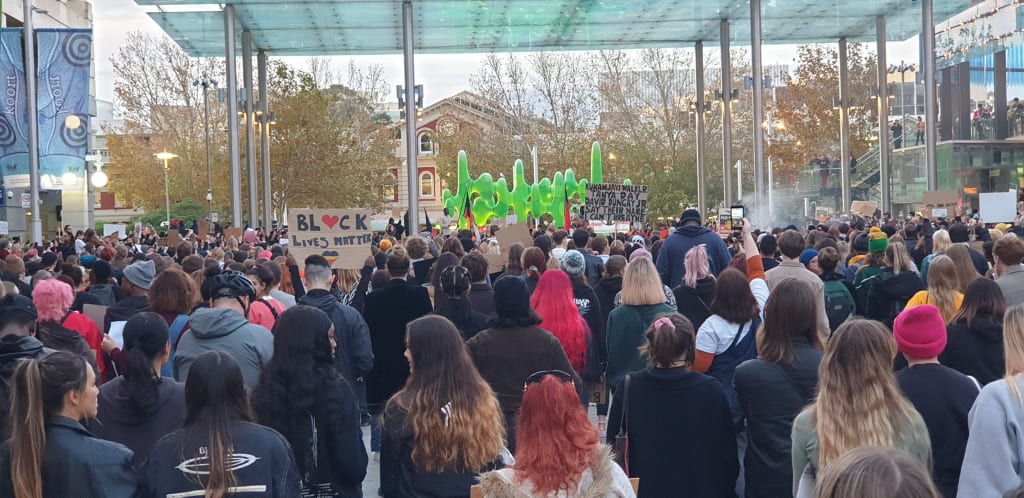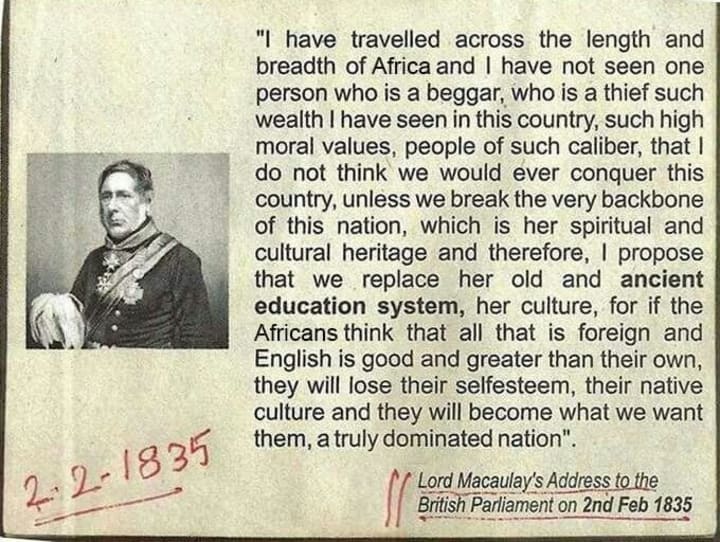Where are your receipts?
Corporate responsibility in response to racial inequality

In the age of information, ignorance in a choice and unfortunately is still king. Our timelines are constantly flooded with curated material that the media uses as a strategy to sway opinions but as new age activists, it is our responsibility to cut through the clutter and get to the point. Today the point is that Black lives matter and we can not claim an inclusive culture (a.k.a. all lives matter) until the war on Black bodies ceases. So, where is the problem? When did this begin? Before we tackle the actions we can do now, we must at least get a sense of the historical problem behind this issue, however raw it may be, to understand the dire need to address it.
Lets take a journey back to the 15th century. The first wave of colonialism began during Europe's age of 'discovery' which was an assertion that a place, feature or civilization did not 'exist' unless white people testified to their existence. Years on, the Eurocentric rhetoric has been reborn to a new form which is tailored to the needs and constraints through constant dehumanization and enslavement people of color, especially Indigenous and Black people. An example:

This system continues to work because the backbone of the people is constantly broken - their psyche is killed and they have been brought down to their knees every single time. This has never been a one-time issue but rather a perfectly designed system that creates fear to prop and protect the greedy ventures of the oppressor.The current iteration of this concept is the oppression in the hands of the police and criminal justice system. Death caused by brutality is uncouth and barbaric but the issue is that the government remains silent.
With the social unrest affecting the core of corporations, companies are releasing statements in support of the movement however where most drop the ball is by not taking or having taken action in support of the movement. Lip service is and has been one of the unseen factors that has retarded reformative growth hence why the question, 'Where are your receipts?', has been posed for institution to show supporting evidence to their statement. While there are some essential strategies being undertaken by corporations, there are some action items I'd like to highlight that I think would be useful as a great place to start.
Internally, the HR department should spearhead frameworks that eliminate prejudice starting from a hiring perspective. An example is by using web forms for job ad responses that eliminate the need to see a candidates name, age, cultural background and gender until after the first assessment has been completed. As humans, we are prone to follow pre-conditioned notions and by filtering that it will change our perspective on the 'best fit' within the company from being people like us to being people who will help us grow and expand our cultural practices. This also extends to the leadership team. When you line up all your leaders, what do you see? Is it representative of the world we see when we step outside? Also, when doing functions or internal events, companies should encourage healthy conversations or panels around issues surrounding diversity. Whilst this movement is considered a sensitive, maybe even taboo topic, talking about it is always a step forward. While doing so, check on your employees who are of Indigenous and African descent. Its a difficult position to be in...putting on a brave face and maintain a business as usual while the essence of your existence is under attack. We can't be one team with one dream if others are left behind.
Externally, reach out to organisations that are currently directly handling issues related to racial inequality. Ask them how you can best support them at a corporate capacity - be it with finances, time or hosting speakers and distributing material to create awareness. Think about it this way : When a loved one is hurt, you ask them to tell you what you can do to make it better and act on it. You don't say 'Here, this should make it better' and move on. The corporate world has also created a habit where they 'find solutions' without gaining an understanding of the reasoning behind it. For example, inviting a speaker for a company event and giving them a list of do's and dont's for their presentation rather than letting them freely speak based on their experience. Redlining topics to appease audiences discounts knowledge and disregards experiences.
Making a statement without follow up action is performative and is a disservice to the cause. As an African person in Australia, I have constantly been overlooked and dismissed but I thought it was just a tax I have to pay for being here even though in my heart I knew it was wrong. Now more than ever, I feel like it is time we address this issue and work on dismantling the system that leaves others out. At the end of the day, we are human in and out of work. We should commit to educating ourselves and our families through the conversations we have and the media we consume. Participate in community activities and provide support to activists that make the world a better place.





Comments
There are no comments for this story
Be the first to respond and start the conversation.